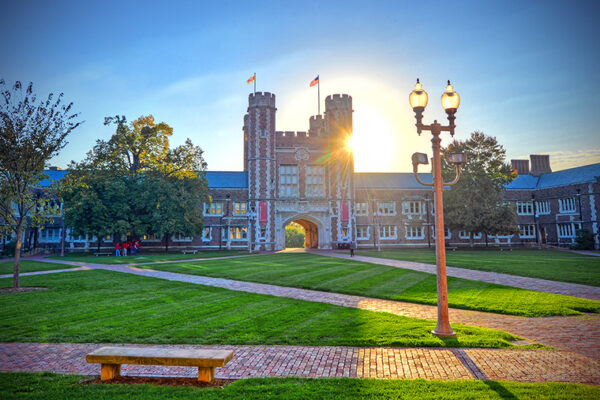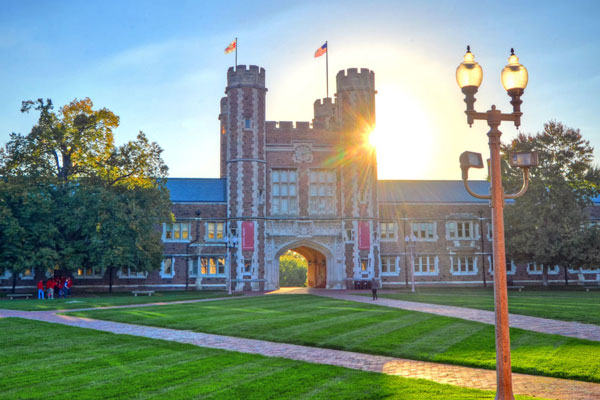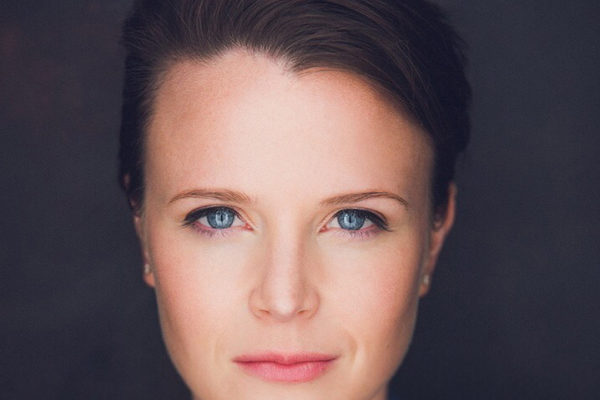 Sexual assault and misconduct remain difficult problems on college campuses across the United States, according to a newly released survey of students from a sampling of the nation’s colleges and universities, including Washington University in St. Louis. The most recent Association of American Universities (AAU) campus climate survey, released today, shows that incidences of sexual assault and misconduct continue to be all too common, and that universities still have significant work to do to address these serious issues.
Sexual assault and misconduct remain difficult problems on college campuses across the United States, according to a newly released survey of students from a sampling of the nation’s colleges and universities, including Washington University in St. Louis. The most recent Association of American Universities (AAU) campus climate survey, released today, shows that incidences of sexual assault and misconduct continue to be all too common, and that universities still have significant work to do to address these serious issues.
Conducted this spring, the survey collected data from some 182,000 undergraduate, graduate and professional students at 33 colleges and universities. It is the second such survey to be administered by the AAU in recent years, providing an important update to the findings of the 2015 survey, in which Washington University also participated. A total of 2,369 Washington University students completed the 2019 survey, a response rate of 16.4 percent.
The results of the new survey, by and large, indicate that sexual assault and misconduct remain particularly challenging problems at our nation’s universities, and that there is significant room for improvement in how institutions address these issues and provide support to students. A summary of national and Washington University-specific findings is available on the Title IX website. The full national report, which also covers sexual harassment, intimate partner violence and stalking, is available on the AAU website.
At Washington University, the survey results provide valuable insight into how the university compares against the national findings, as well as the 2015 survey results. Among the high-level indicators:
- 13 percent of all Washington University students who responded to the survey indicated that they have experienced penetration or sexual touching involving physical force, inability to consent or stop what was happening, or attempted penetration using physical force while attending the university. This percentage is the same as the national average reported in this year’s AAU survey. Comparatively, in 2015, 10.9 percent of all Washington University students reported similar contact.
- This figure is highest among female undergraduate and graduate students, of whom 27 percent and 9.3 percent, respectively, reported this type of contact. These percentages are higher than indicated by the 2015 survey, when 22.6 percent and 8.5 percent, respectively, responded similarly. This year’s results for Washington University are within approximately 1 percentage point of the 2019 national findings, which indicate that 25.9 percent and 9.6 percent of female undergraduate and graduate students, respectively, reported similar experiences.
Among these troubling statistics, the survey also indicated a number of positive indicators, specifically in the area of bystander behavior. Nearly one-third of Washington University students who responded indicated they had witnessed someone making inappropriate sexual comments, sharing sexual images or otherwise acting in a sexual way that they believed was making others feel uncomfortable or offended. Of these students, 69.8 percent took some type of action, ranging from checking in with the person who seemed impacted by the behavior to directly intervening in the situation. Of the 17 percent of students who indicated they had witnessed a situation that they believed could have led to a sexual assault, 84 percent took some type of action. (See a summary of additional survey findings.)
“I appreciate the work of the Title IX Office, the Relationship and Sexual Violence Prevention (RSVP) Center and other campus partners to support students. We will continue to work collaboratively with students to raise awareness of these issues and to effect change. Even with the extensive effort we continue to put against preventing and addressing sexual assault and misconduct on our campus, it’s clear that we still have a great deal of work to do,” said Lori White, vice chancellor for student affairs. “While it is somewhat heartening to know that students have expressed some confidence in our commitment to taking these issues seriously, we will continue to work at gaining more of their trust and demonstrating that we are here to support them as they navigate these difficult topics. This is work that is never completely done. It is a challenge that requires ongoing, sustained and robust effort to overcome, and my commitment is to keep at it.”
During the 2018-19 academic year, the university embarked on a significant effort to make improvements to create a more timely and efficient Title IX process and to provide more support for students who become involved in these cases. The changes were based on findings and recommendations of a working group that was convened in response to student feedback and concerns raised by the Title Mine student organization during the spring 2018 semester. The changes included:
- increased staffing, including a new full-time investigator, education specialist and administrative assistant in the Title IX Office; the addition of a full-time administrative coordinator, two full-time counselors and two full-time sexual relationship and violence prevention specialists in the RSVP Center; and one full-time counselor in the Habif Health and Wellness Center;
- additional training and education for staff in the Title IX Office, RSVP Center, Habif Health and Wellness Center, and Student Affairs, as well as members of University Sexual Assault Investigation Board (USAIB) panels;
- creation of a Title IX advisory committee, comprising students, faculty and staff; and
- increased transparency through enhancements to the Title IX website to make case numbers and outcomes more readily available, as well as information about the Title IX process.
“It is always jarring to hear from our students that they have experienced unwanted sexual contact or violence,” Chancellor Andrew D. Martin said. “As difficult as it is to face these truths, it is incredibly important for us to learn as much as we can about the problem so we can continue in our pursuit of meaningful solutions. I’m grateful to the AAU for administering the campus climate survey, which provides a window into these challenging issues, nationwide and here at Washington University. We remain firmly committed to working, together with our students as we listen and learn from them, to address sexual assault and misconduct on our campuses.”
Sexual assault and relationship violence prevention programs currently in place at Washington University fall into three main areas — education and prevention; student support; and law enforcement and disciplinary processes. Learn more by reading a summary of sexual violence prevention efforts at Washington University and by visiting the RSVP Center website.
To learn more about the AAU survey, visit the AAU website.


